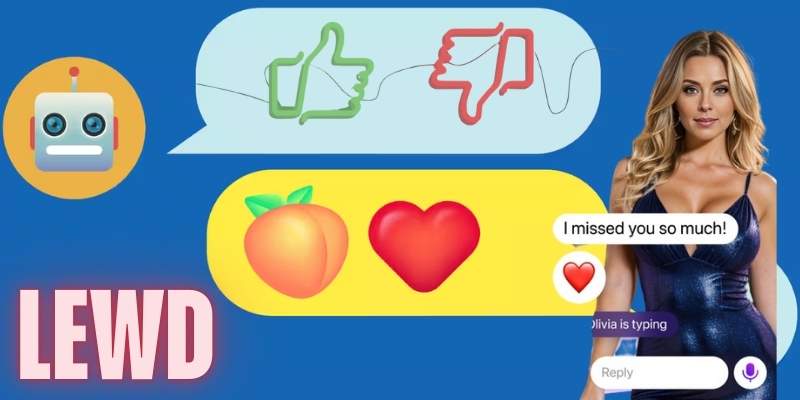People don’t usually admit out loud that they’ve tested Lewd AI Chat apps, but let’s be honest—they’re everywhere.
They pop up in ads, whispered about in forums, or shared in late-night conversations when curiosity outweighs embarrassment. I’ve tried them, I’ve listened to friends talk about their experiences, and I’ve thought a lot about why they’re both alluring and a little unsettling.
The Upside: Why People Dive In
One of the biggest draws is freedom. These apps let people experiment with fantasies they may never act on in real life.
For some, it’s about exploring parts of themselves they keep tucked away. For others, it’s simply about play—like role-playing in a safe sandbox where no one’s judging.
There’s also comfort in the availability. The AI doesn’t roll its eyes, ghost you, or bring baggage into the conversation.
It just responds, adapts, and sometimes feels eerily attentive. For anyone battling loneliness, or for those who just need a late-night escape, that kind of access can be soothing.
The Emotional Pull
I’ve heard people describe their chats as oddly therapeutic, even though that’s not the intent. When the bot listens, teases, or offers empathy—even scripted empathy—it can feel real.
And feelings don’t care whether the source is silicon or skin. That’s the part that makes me pause. Because what feels safe can also create a false sense of intimacy.
The Downside: Where Things Get Messy
Here’s the thing—what goes up often comes down. Relying too much on these apps can create dependency. If you start preferring scripted intimacy over messy, unpredictable human connection, you risk isolating yourself further.
Real relationships aren’t always smooth. They argue, they misinterpret, they grow. An AI doesn’t.
There’s also the privacy issue. A lot of people don’t stop to think where their data—those private, intimate chats—actually go. Companies aren’t always transparent, and sharing fantasies with a server somewhere in the cloud has its risks.
Moral and Ethical Questions
I can’t ignore the moral gray area either. Some use cases veer into territory that could normalize harmful ideas.
Just because the app allows it doesn’t mean it’s healthy. I’m not here to preach, but I do think it’s worth pausing to ask: is this just play, or is it feeding something darker?
My Take
Personally, I think these apps can be both fun and dangerous. Like alcohol, gambling, or even social media—they’re not inherently evil, but they demand moderation and self-awareness.
Used responsibly, they can be creative outlets, ways to de-stress, or even bridges for people who struggle with shyness. But if they become the main source of intimacy, that’s where it gets dicey.
Closing Thoughts
The pros and cons are tangled, and maybe that’s what makes the discussion interesting. On one side, there’s freedom, experimentation, and comfort.
On the other, risk, dependency, and ethical dilemmas. The apps themselves won’t decide which side you land on—that’s on you. The important part is to keep asking the hard questions while you explore.

